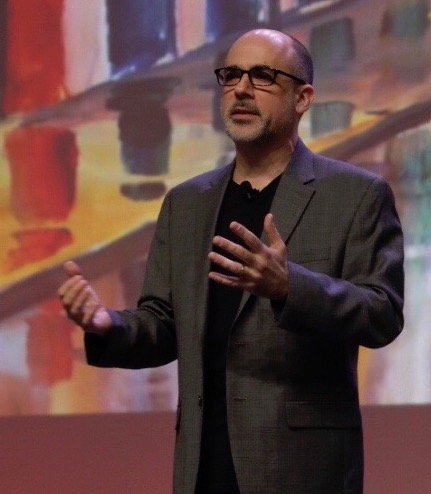
From Facebook to Slack, from Yammer to Jive, from email to Google Groups… Platforms for group collaboration are easy enough to find and use, but success will remain elusive unless we approach these platforms with a collaborative mindset and an ability to work out loud.
Collaboration does not happen on its own. Keeping these six principles of effective collaboration in mind will help organizations and leaders be more successful by being more collaborative and transparent.
1. Openness
Collaboration begins with adopting a new mindset of openness and working out loud. This openness will welcome others into your work, and into the work of your team. Share your work, share your work progress, and share your work in progress. A spirit of openness and generosity brings more opportunity for more collaboration and connection.
2. Bravery
We want our work to represent the very best of who we are and what we do, and sharing our work before it is complete is brave. We make ourselves vulnerable to criticism and correction, even before our work is done. Trying new tools and techniques requires a level of bravery. The tools are unknown. The tools may not work as well as we wish they did, or in the way we wish they did. We are experimenting, and we don’t know the outcome. We are being brave, and our bravery can result in more communication and more confidence in our partnerships. Being brave leads us to try new things, and encourages collaboration with others.
3. Experimentation
Our work will only improve and move forward if we try new things. Leaders and their organizations need to always explore new tools, new organizational structures, new policies and procedures, and new ways of working together. Sometimes, these explorations will result in work being done quicker with more people involved and engaged in the process. We will find new opportunities for saving time and for accessing expertise. Other times, these explorations will result in failure. The tool we select won’t work well, a person we invite into the process does not add value. Time is not saved. Whether we succeed or fail, we will learn, and what we learn will help us when it comes time for the next project.
4. Trust
Collaboration does not work unless there is trust. Colleagues need to trust one another that work comes before ego, acclaim and attribution. Supervisors need to trust that their direct reports are engaged in the work, monitoring progress and feedback, and actively communicating with stakeholders. Staff need to be able to trust their supervisor. Supervisors need to be engaged without being overbearing. Supervisors need to engage with projects and staff, and they need to be able to get involved with a project when there are opportunities to constructively support its successful completion.
5. Transparency
When we are open with our work, when we are trusting and brave, when we experiment, we can be truly transparent in our work. When we are more transparent, we collaborate more effectively. Share work in progress. Invite feedback, correction and suggestions. Encourage your team to meet in a way that others can monitor agendas and projects. Take advantage of the transparency of others, and let their work inform your work. Utilize this transparency so your organization can work smarter and leaner.
6. Determination
Collaboration does not happen on its own. An obligation needs to be made to a new way of working, where the entire organization is purposeful about being more collaborative. Organizational leaders must compel staff to be more engaged in collaboration by strategically deploying new policies, procedures and digital tools to support a new work culture. Once deployed, the new strategy must be supported by a sustained commitment to collaboration, to taking advantage of the new policies and procedures, to constructively using the digital tools that have been deployed. Only when an organization is truly determined to be more collaborative will the benefits of collaboration be realized.
So be brave and determined. Share your work, trust your colleagues, and experiment with new tools and policies. Your new collaboration software will only work if you are collaborative, and if you work out loud.
Related Posts

URJ and Israel: Post-October 7th Updates and Resources

This Year, Will We Turn our Mourning into Dancing?

